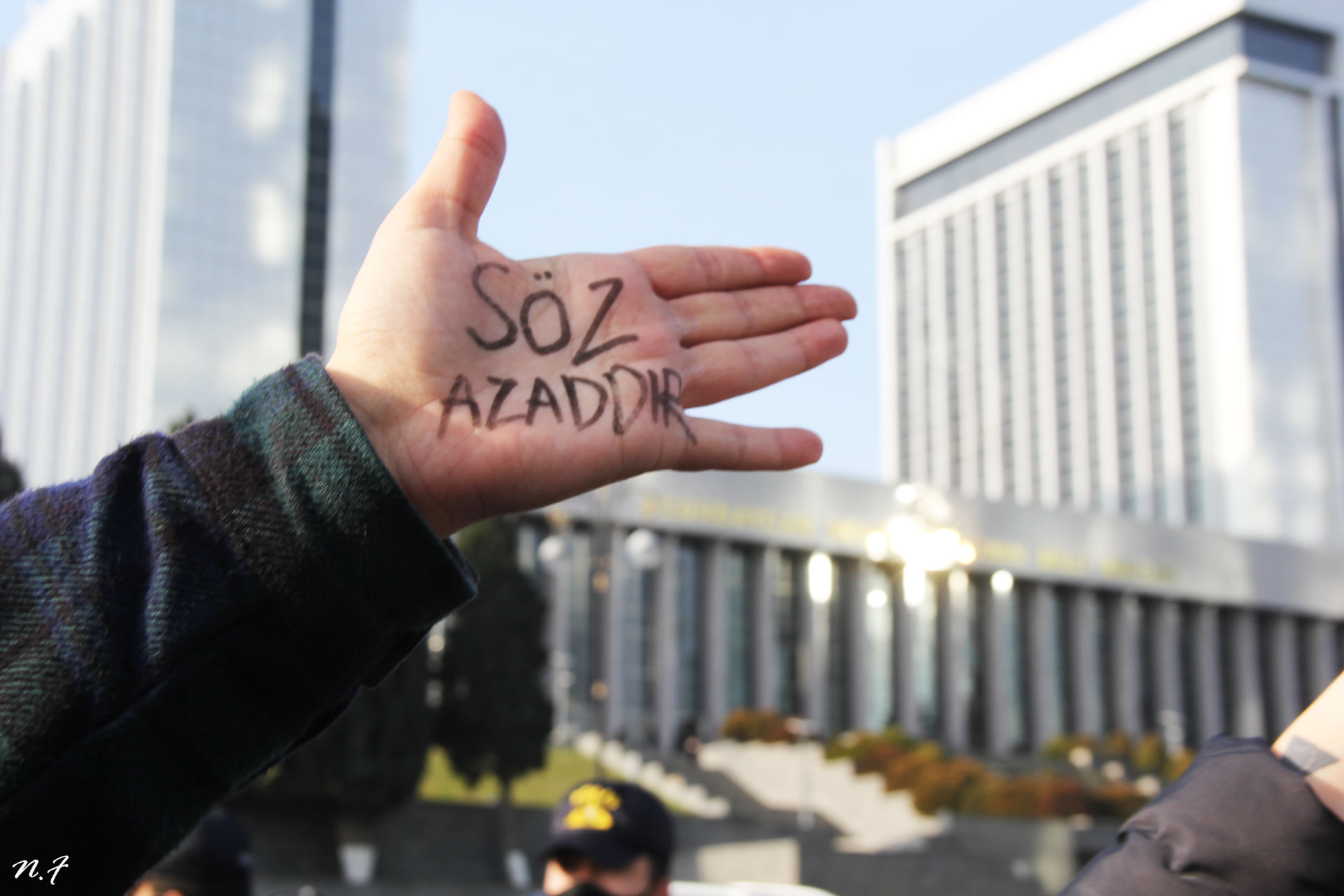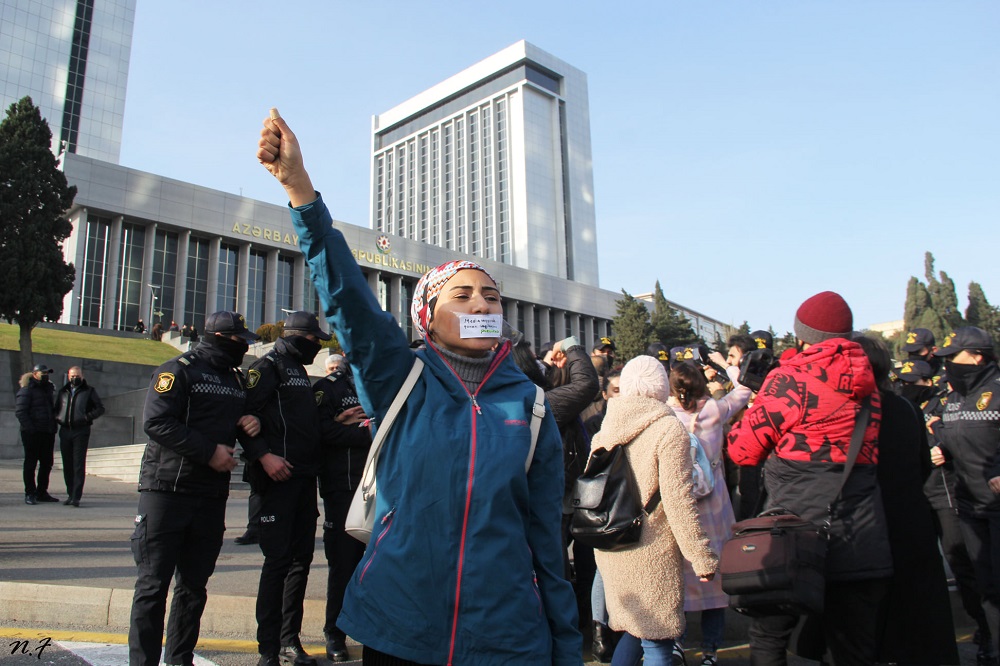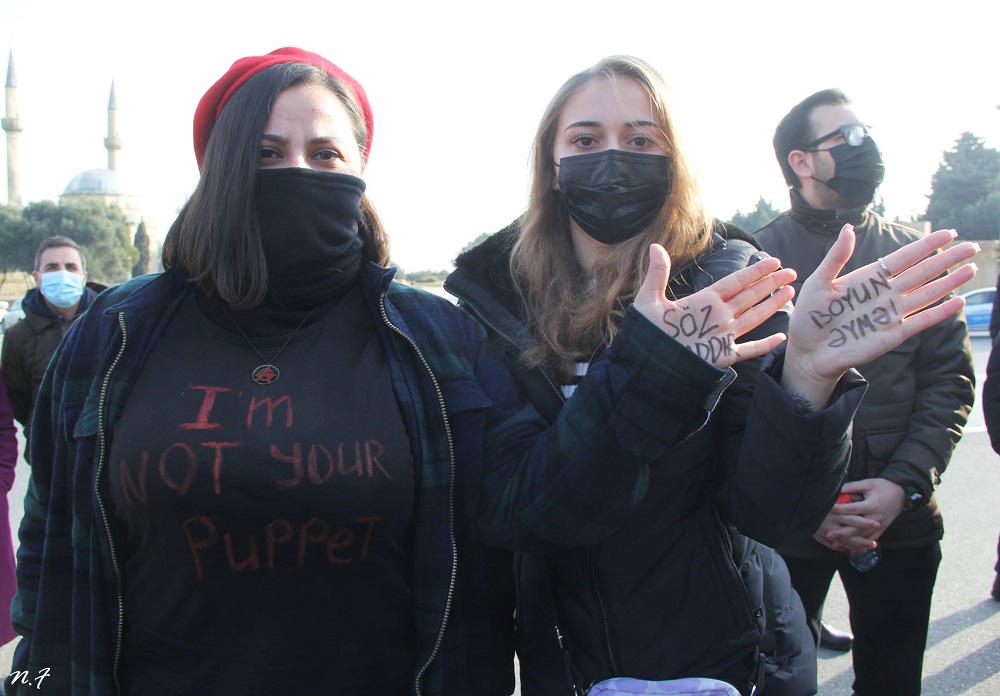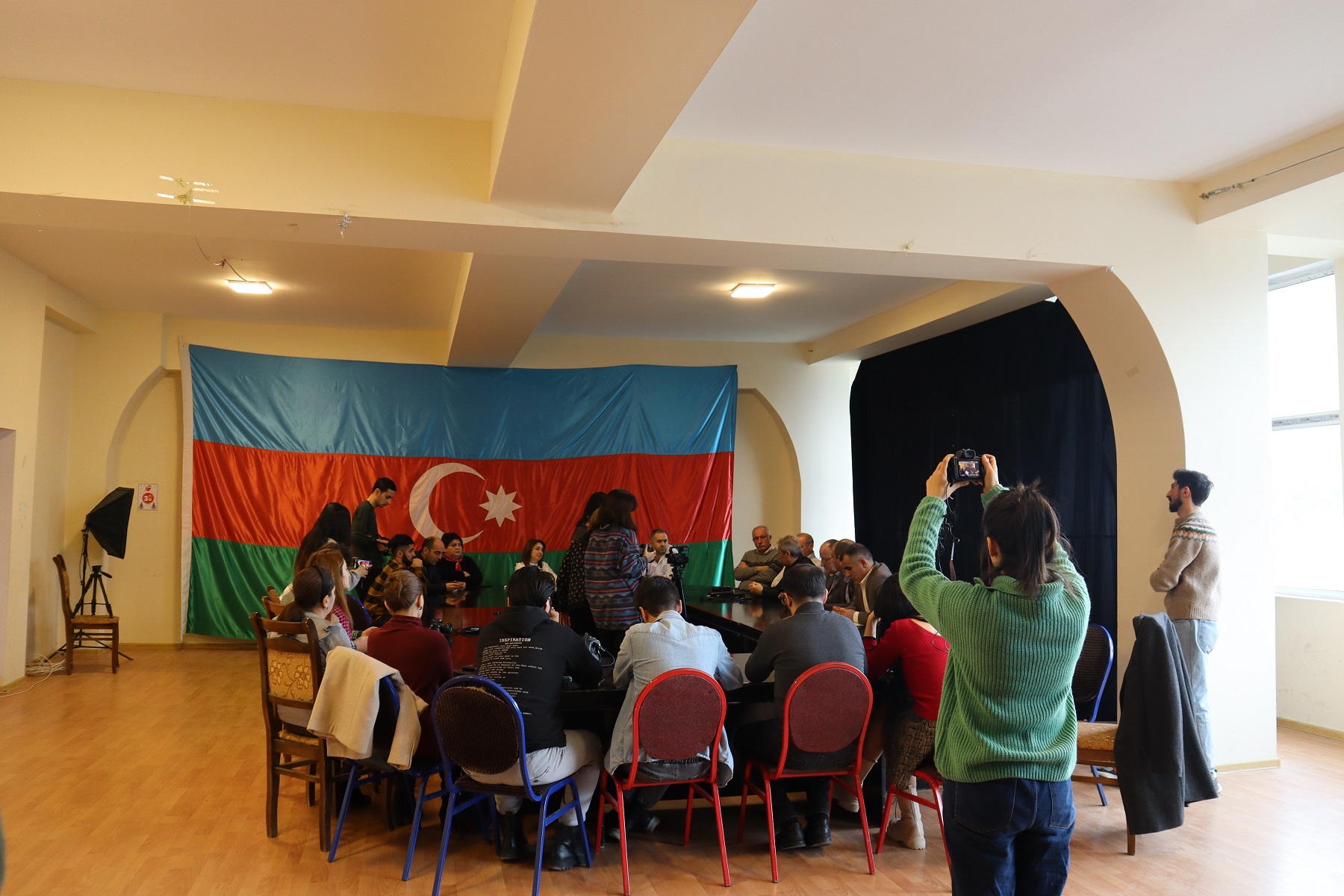'There is no freedom' - journalists on lack of media freedom in Azerbaijan
Lack of media freedom in Azerbaijan
In the new World Press Freedom Index published by Reporters Without Borders, Azerbaijan has moved up three places to 151st of 180 countries. But the head of the Reporters Without Borders bureau for Eastern Europe and Central Asia, Jeanne Cavelier, says the progress is due not to positive changes in Azerbaijan, but to a worsening situation in other countries.
- Thirty years in a newspaper printing house
- Will the EU impose sanctions on Azerbaijani officials? Opinion from Baku
- List of “undesirable” songs published in Azerbaijan – VIDEO
“Azerbaijan ranks 151st of 180 countries in the new World Press Freedom Index, between Pakistan and Afghanistan. Although this is slightly better compared to last year, this is due to the deterioration of the situation in countries around Azerbaijan in the ranking. Most importantly, Azerbaijan is still among the countries with a very poor showing in the index. Journalism is a very dangerous profession in Azerbaijan,” Cavelier said.
Reporters Without Borders takes into account five key indicators in determining the index — political context, legal framework, economic context, socio-cultural context and security. In Azerbaijan in particular a serious decline in the safety of journalists is noticeable, as well as the legal landscape around journalism.
Cavelier says that this is due to the introduction of a new law on media in Azerbaijan.
“In fact, the authorities said the new law would benefit the media environment, but a year later we saw that forty media outlets did not receive accreditation, and twenty journalists were deprived of it. The authorities arbitrarily decide who is a journalist and who is not, and collect the personal information of all people who have registered. This is very dangerous under an authoritarian regime led by Ilham Aliyev, who is known as a press freedom predator. Therefore we call on the Azerbaijani authorities to completely revise the law and promote an alternative, namely self-regulation,” Cavelier told Voice of America.
Violence, threats, harassment…
“Everyone who calls himself an independent journalist knows that there is no freedom of press in Azerbaijan,” independent journalist Ulviyya Ali said. She says she knows this from experience, and of course the experience of many others.
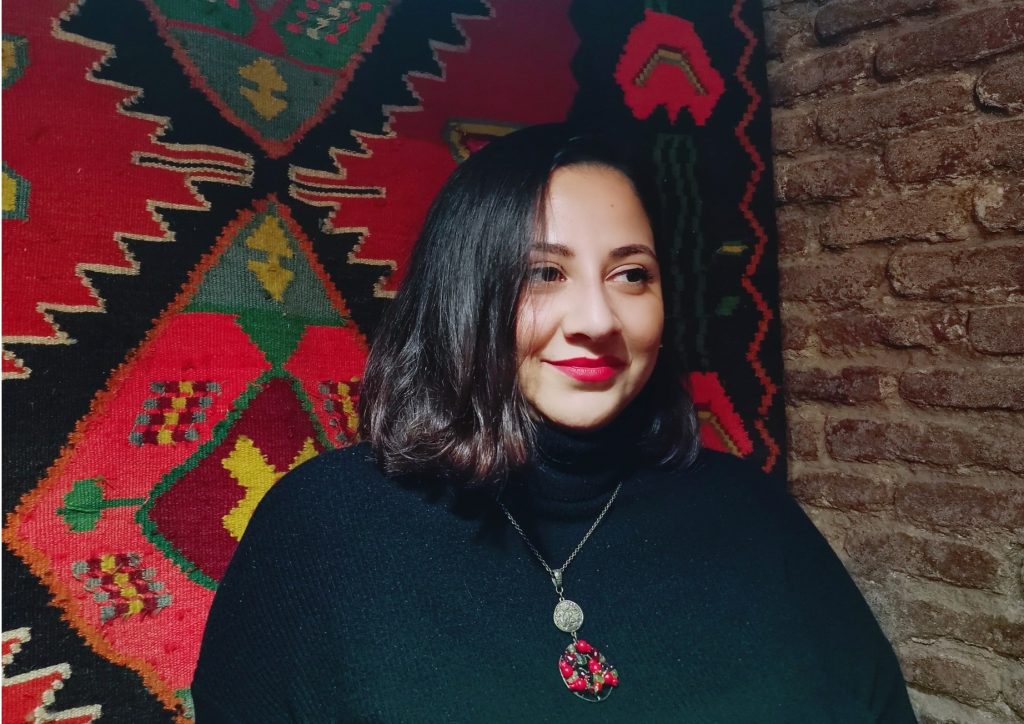
“In a country where freedom of expression is considered almost a crime, where journalists are subjected to various forms of violence, pressure, torture, threats, arrests and even murder, freedom of the press is out of the question. There were cases of listening to journalists with the Pegasus spyware, disseminating information about their personal lives. Several websites of independent media are blocked in the country. The new law “On Media”, adopted in February last year, indicates that this control will be strengthened. These examples alone are enough to see the state of the press in Azerbaijan.”
During her seven years of work, Ulviyya Ali has repeatedly faced various kinds of obstacles while carrying out her professional activities — even being detained and subjected to violence by the police. Although she challenged this, the court rejected her case. She appealed to the European Court of Human Rights because she could not get justice in the country.
“In August 2021, when feminist activists were protesting in front of the Khazar district police station in Baku, I and several fellow journalists were detained by the police and subjected to violence along with the activists. My camera was also damaged. But the court ignored our complaint. There were other incidents where our complaints turned out to be fruitless and they were not interested in investigating them.”
To be an independent journalist in Azerbaijan…
Ulviyya Ali says that while doing her professional work as a journalist, she would like to focus more on the quality of her work. “But you have to deal more with overcoming obstacles than with your work.”
The journalist notes that media legislation does not protect media representatives and even increases the obstacles they face:
“There is criminal liability for obstructing the activities of a journalist in Azerbaijan, but this remains only on paper, no one is punished. The new law on media, as well as all the problems that I have listed, is one of the obstacles to the press, limiting the independent activities of journalists.
Azerbaijan, as a member of the Council of Europe, must bring its laws and regulations in line with the standards of the Council of Europe. But this law does not meet the standards of the Council of Europe.
Despite the fact that the Venice Commission of the Council of Europe gave a negative opinion on the media law, it went into effect. In general the law creates broad conditions for interference with freedom of the press and expression, and stands over the heads of journalists like the Sword of Damocles. The issue of the media registry, contained in the law, is generally absurd. Why does the state or some authority have to confirm that I am a journalist? Why should I prove to someone that I am a journalist?
Even without this law, journalists faced various pressures and obstacles, but after the adoption of the law, it looks like the situation will become even more difficult,” Ulviyya Ali said.
Police violence during professional activities
Nargiz Absalamova, a freelance journalist who suffered police violence during a protest against the draft media law in front of the Milli Majlis on December 28 of last year, says nothing positive comes to her mind when she talks about freedom of media in Azerbaijan .
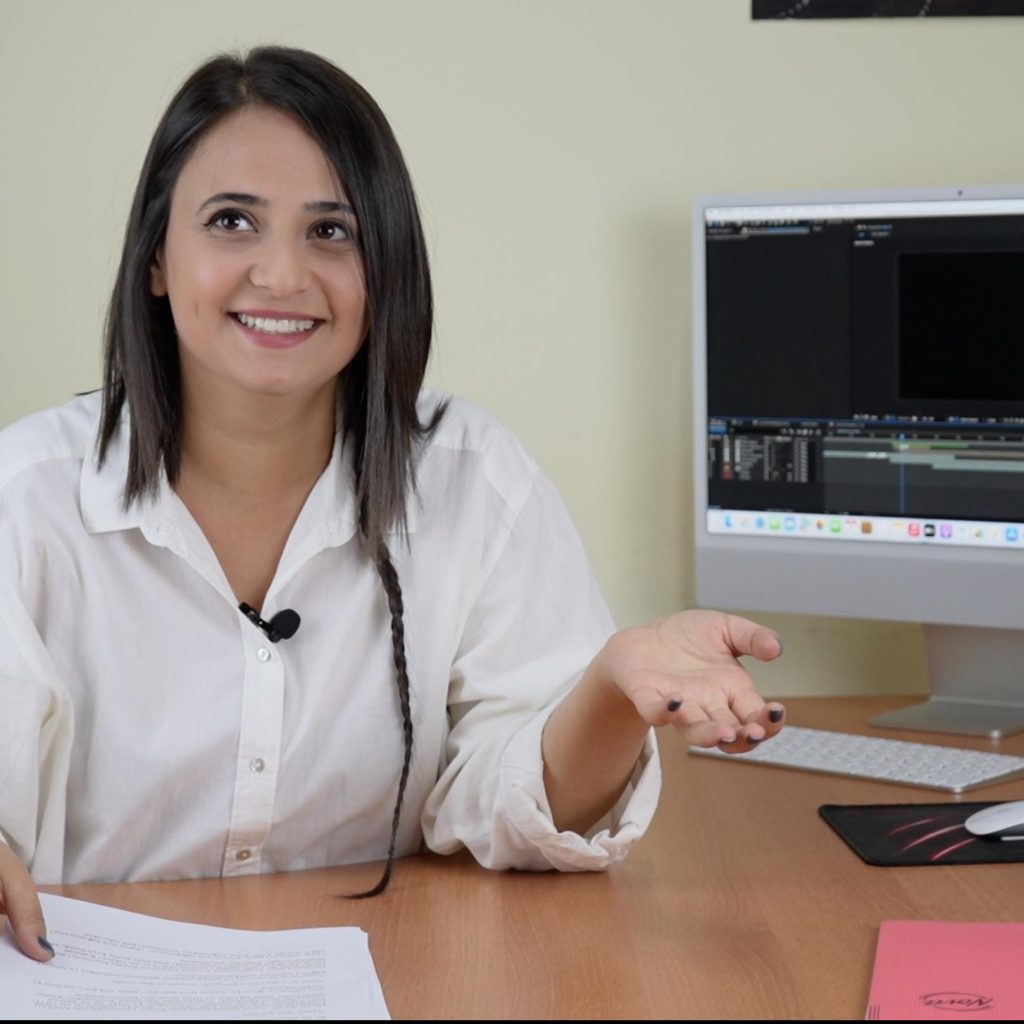
“Unfortunately, we cannot celebrate Press Freedom Day in Azerbaijan, because as a country we are far behind in this area. When I’m doing an interview on the street, the police come up to me and tell me that I have to get permission from the executive branch to interview people. I remember being pushed and held by the police while performing my professional activities during protests.
When I participated in the protest against the adopted draft law “On Media”, the police pushed me and I fell down. My collarbone was broken. After that I was treated for months, and a year later I was operated on, but the physical damage is still there. My health has not yet fully recovered. Now I try to be careful when I work, because if this bone breaks again, it could get worse,” Absalamova recounts.
Complaint to the Constitutional Court regarding the new law
“This law should be seen as a death sentence for the press,” Shamshad Aga, editor-in-chief of Argument.az, believes. He says the site he worked on was blocked twice by court order in 2018.
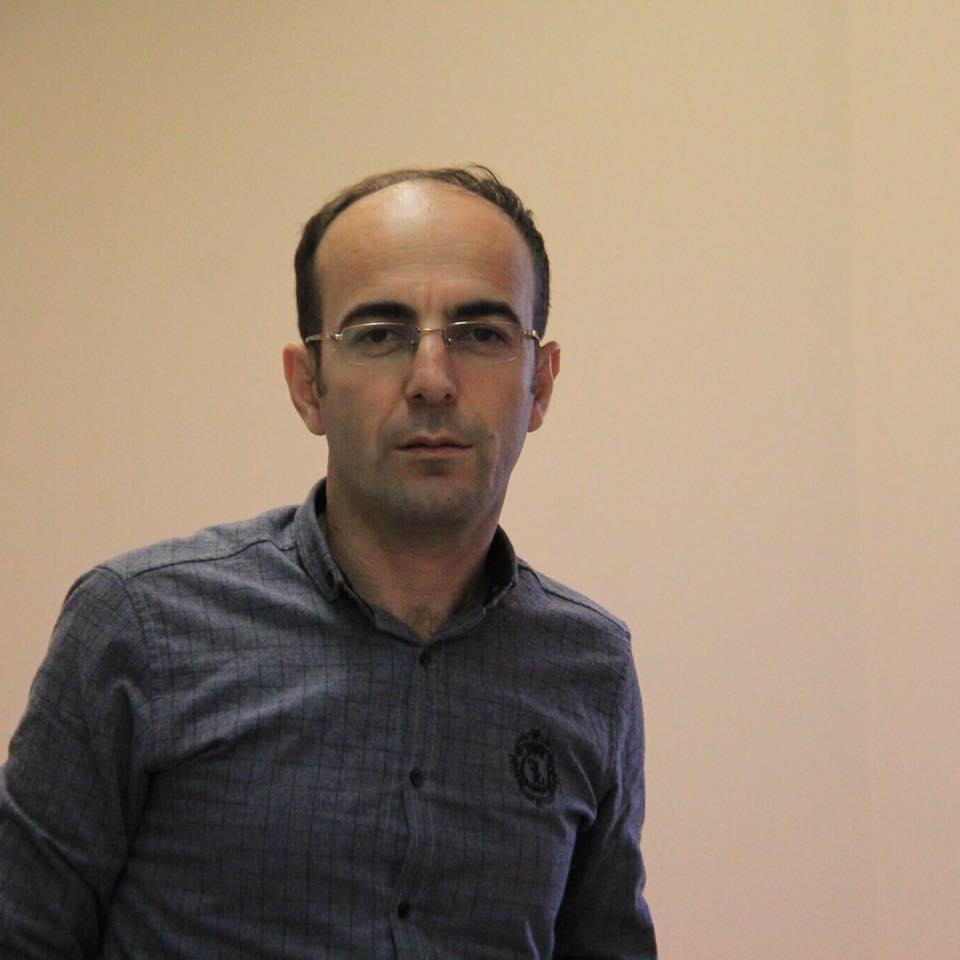
“Imagine Azerbaijan lagging behind in terms of freedom of the press compared to neighboring countries. In this list, Azerbaijan stands next to Afghanistan and Pakistan.
When our site was blocked, the proceedings at the Court of Appeal took place on the days when international events were held in Azerbaijan, and Merkel was here on a visit. That’s why the block was removed from the site. At that time, it was openly reported in the press that Merkel would hold a meeting with representatives of the independent media. The blocking of the site caused a major international backlash. That’s why they removed the block. However, in the following months, we shared information about the protest by potato growers in Jalilabad. The site was unofficially blocked. Now our case is in the European Court.
Today I appealed to the Constitutional Court regarding the media law. My demand is to suspend the operation of this law in practice, check the constitutionality of the law, and send the law to the Milli Majlis for constitutionalization. I mailed a 30-page appeal,” Shamshad Agha said.
Legal registration of restrictions for media
Lawyer Samad Rahimli says attacks on freedom of speech in Azerbaijan are systematic.
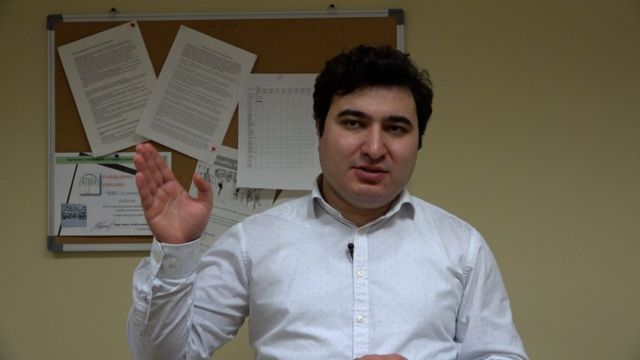
“Violations of freedom of speech in our country are part of the policy of state control. Simply put, freedom of speech is allowed only in cases that the state considers it acceptable. In cases where this is considered unacceptable, the general control mechanism prevents this.
In June 2022, the Venice Commission adopted a general opinion on the Law on Media, according to which the law is assessed as problematic from beginning to end. In conclusion, the law is defined as excessive government regulation of the media, which is a private sector. My position is that this law is a kind of legal formalization of the bans that have been imposed on the media so far,” the lawyer says.










